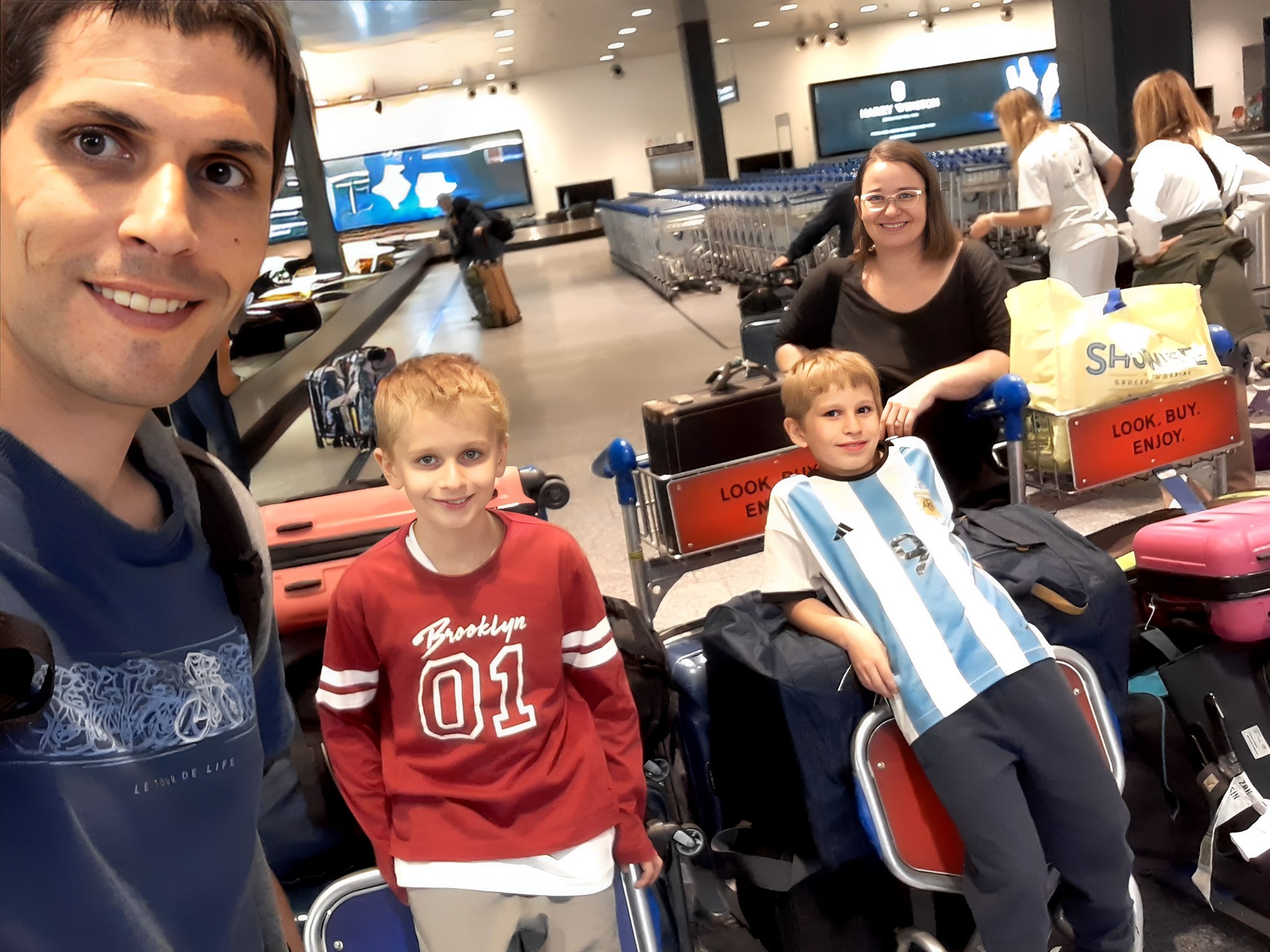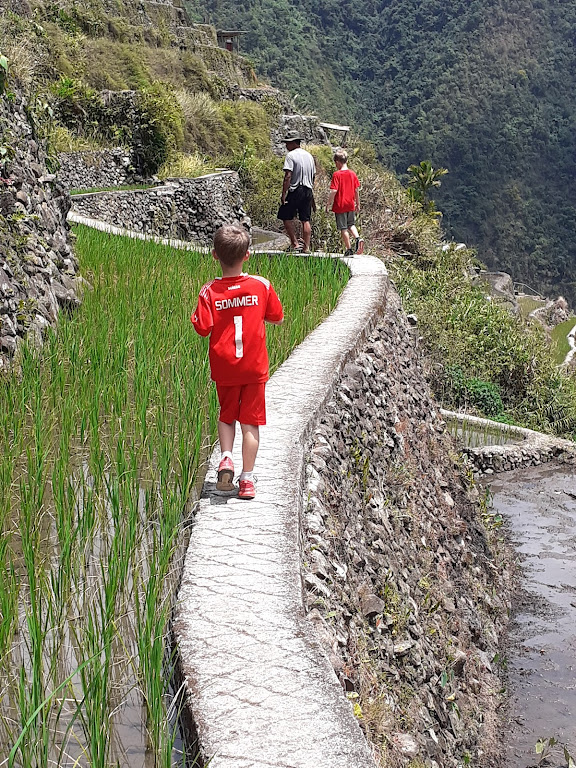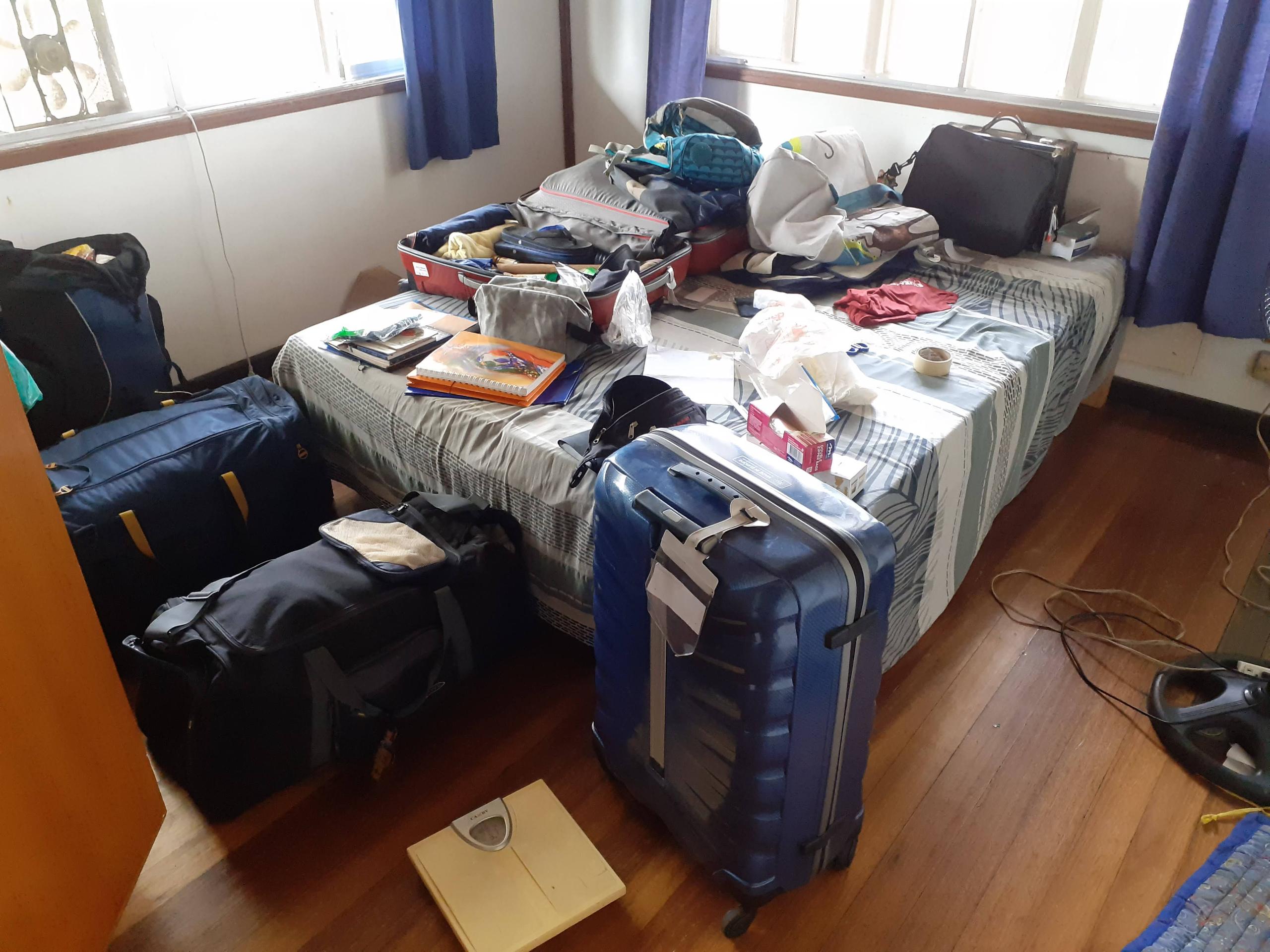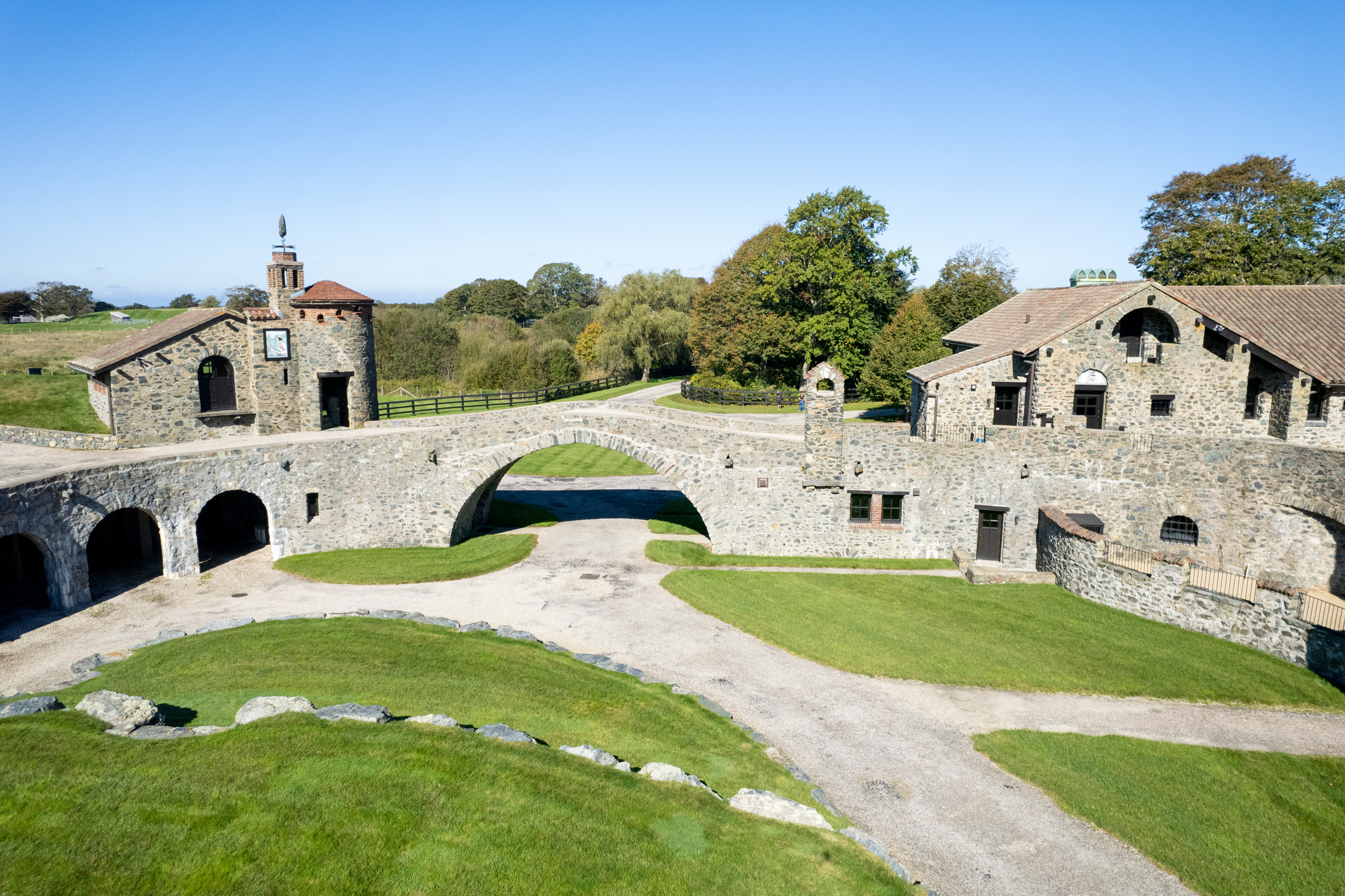
A family abroad returns to Switzerland for children’s education

After five years in the Philippines, the Stankowskis have moved back to Switzerland so that the children can attend Swiss schools. The family’s emotional last few months in its adoptive country included a holiday and a long-distance search for new jobs and a new home.
Barbara Stankowski has found work as a pastor in Ittigen, in canton Bern. The family’s two boys, Noel (ten) and Micha (7), will return to the classroom in Switzerland later this summer, after years of home schooling due to the Covid-19 pandemic. Before leaving the Philippines, the Stankowskis took a dream trip to the north of the country to visit the rice terraces. Stankowski shares her experience of the last few months.
Barbara and Simon Stankowski are returning to Switzerland for the education of their two sons, Noel and Micha. We will accompany them on this adventure. With the help of the diary the family is keeping, we will share the main stages of their journey with readers and give advice on how to avoid pitfalls when entering children into the Swiss education system.
Job search from 10,000km away
Barbara Stankowski, as told to SWI swissinfo.ch : “One of the biggest challenges of our return to Switzerland was finding a job. I’ve known for a long time that I wanted to resume my work as a pastor. It was also clear to our family that we wanted to live in the parish where I’d be working. Our future home therefore depended directly on my job.
When we emigrated in 2018, I figured we could settle anywhere in Switzerland on our return. But increasingly I realised that, after five years far away from my family and my friends, I wanted to live near them. So I limited my job search to canton Bern.
At the beginning of the year, I called many parishes. That phase was difficult, because with each call I was briefly immersed in the world of Switzerland. And then I had to reconnect to my daily life and my mission in the Philippines. I underestimated how much of my energy that would take.
My husband, Simon, also started looking for work [in Switzerland] from the Philippines. He’s a teacher, and because of the massive shortage of teachers he will surely find a job soon too.
Search for housing
Eventually I received an offer to work as a pastor in the parish of Ittigen. It was a huge relief to know that this period of uncertainty was over.
We still faced the question of finding housing. Pastors often live in the parish presbytery. But since the one in Ittigen won’t be available until January, we’ll stay in another flat until then.
Return to a normal school day
Our children will go to school in Ittigen starting in August. We haven’t done much about this yet since everything in Switzerland is very easy.
A few days ago, we simply wrote to the head of the Ittigen school to introduce ourselves briefly and to inform her that Noel and Micha will enrol for the new school year. I hope we’ll be able to take a short tour of the school before the [summer holidays] so that the children will have an idea of what to expect for next year.
All four of us are excited that the children will be returning to normal in-person schooling.
Last trip in the Philippines
A few months ago, we were able to fulfil one of our dreams: to travel to the north of the country to visit the terraced rice fields.
As soon as we arrived, we were captivated by the views of the rice terraces. We went on several hikes there. It’s quite tiring because you have to go up and down narrow walls and steep steps. We were amazed at how easily the local people navigate the slopes.

Next we visited Sagada, where coffins hang at dizzying heights from rock faces. These unusual funeral rites have made this small village famous worldwide. As a pastor, this distinct funerary culture fascinated me. The people of this province don’t want to be buried because they believe that the souls of the deceased suffocate underground.
Lastly, we spent several days by the sea in the north-east, and after barely two weeks of vacation we were back in Manila.
Thanks to this trip, we were able to replenish our energy for the final sprint awaiting us. We discovered aspects of the Philippines that we’d known nothing about. We now understand our host country a little better and are astonished by its incredible cultural diversity.
Surprises in store
We landed in Switzerland on June 15. Unlike many Swiss expatriates, we didn’t book a container to bring our belongings back – we only had our suitcases. So we gave our friends in Manila almost all of our household items and most of our clothes and toys.

Before our departure [for the Philippines] in August 2018, we left some furniture with my parents, as well as clothes, bicycles, dishes, etc. Now that we’re about to move into the flat in Ittigen, we can’t wait to see what resurfaces when we unpack our boxes.
Physically we’re doing well, but our souls will need a long time to return fully [to this country].”
Preparing for school
The Stankowskis are gradually reconnecting to life in Switzerland. Because they learned about Barbara’s job in Ittigen several months ago, they were able to envision their return before they moved.
They have also benefitted from the easy process of organising the children’s schooling. In canton Bern, as in a number of other cantons, the municipalities are responsible for education, explains Stève Blaesi, head of the French section of Bern’s office of compulsory education. In principle, every child registered in a municipality has the right to attend a local school.
Blaesi cautions that those returning to Switzerland from abroad “should be careful not to parachute freshly uprooted children [into a school]”. He therefore recommends completing the administrative steps as soon as possible so that the school can, if need be, put support measures in place.
Children can also have a difficult time resuming coursework in the Swiss school system. For this reason, it is sometimes necessary to be flexible, says Blaesi. Grade level is determined in part by age, but a student’s educational background is the most important factor. Children are therefore sometimes placed a year ahead or behind.
“Since your municipality determines the school your children will attend, be mindful of where you choose to live,” says Blaesi. “Because it’s not possible to change schools afterwards except in certain serious cases.”
Translated from French by Katherine Bidwell

In compliance with the JTI standards
More: SWI swissinfo.ch certified by the Journalism Trust Initiative


























You can find an overview of ongoing debates with our journalists here . Please join us!
If you want to start a conversation about a topic raised in this article or want to report factual errors, email us at english@swissinfo.ch.